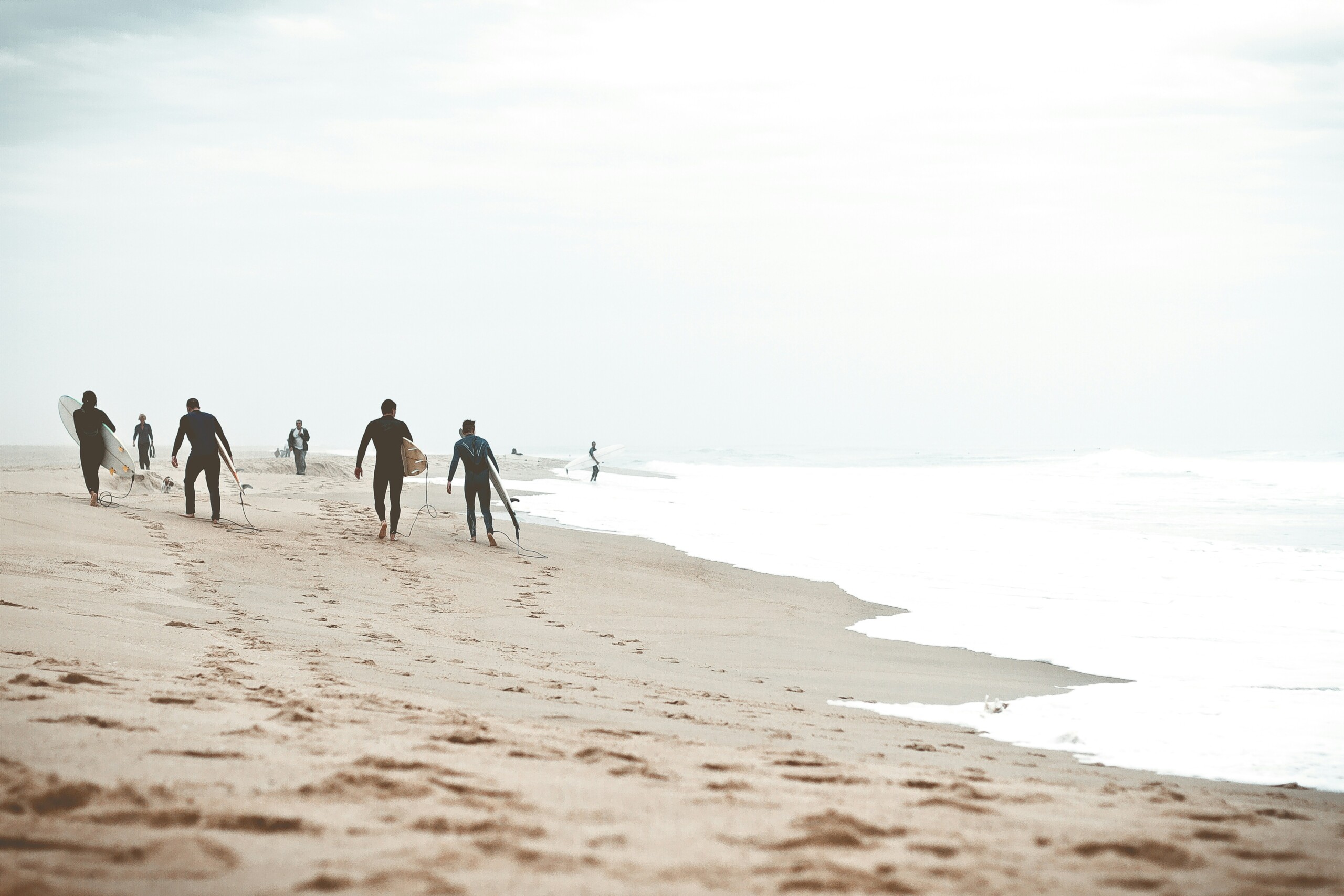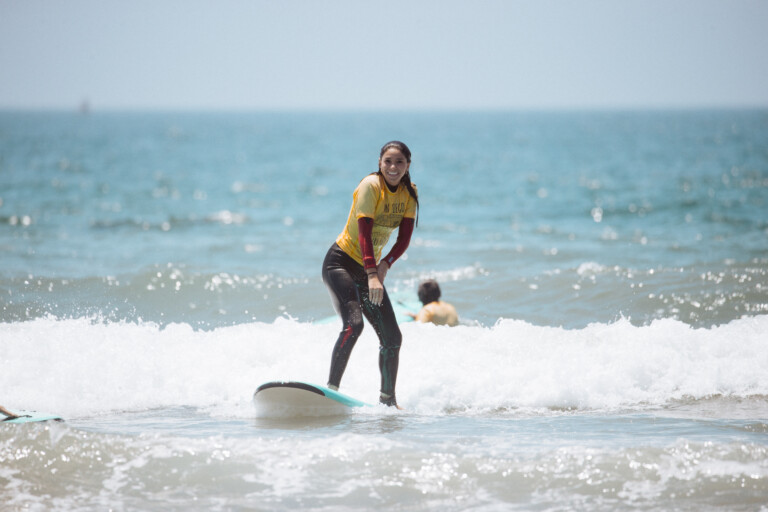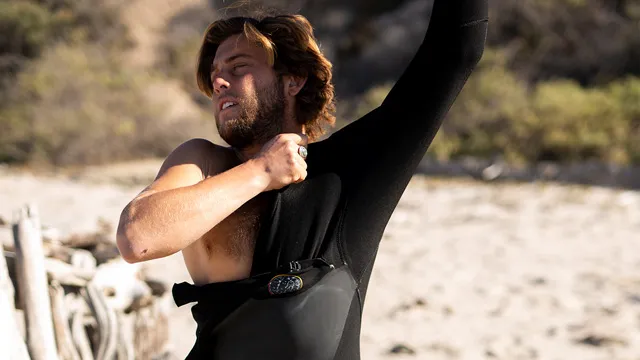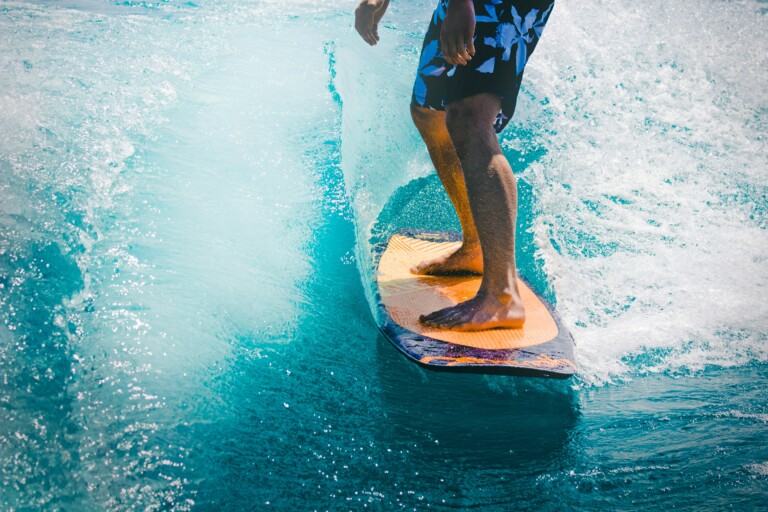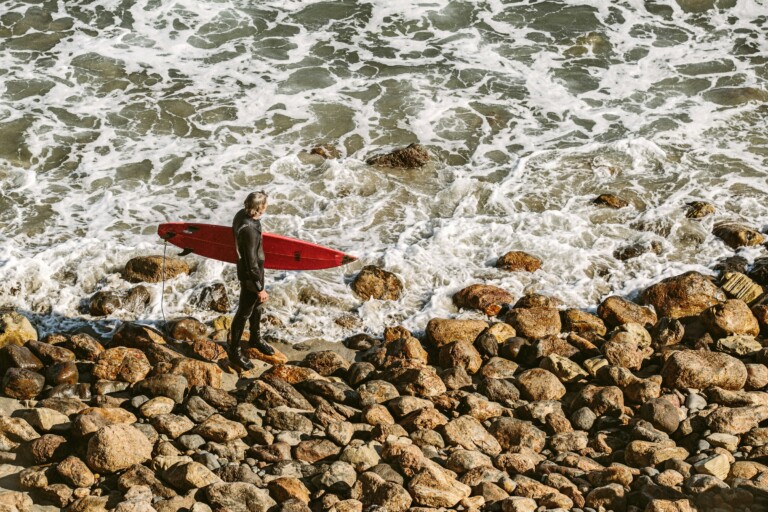When you step into the world of surfing, especially at well-known spots, you’re not just riding waves—you’re stepping into a culture rich with history, tradition, and respect. At San Diego Surf School, we teach more than just technique; we emphasize the importance of respect in the water. Understanding the unspoken rules of surfing etiquette is key to gaining respect from others and keeping the harmony of surf spots alive.
1. Respect the Surf Spot’s History
Every surf break has its own unique history, culture, and local community. Some surf spots have been surfed for decades, even centuries, by locals who have a deep connection to the area. From the first surfers to those who have protected and maintained the spot, there’s often a rich legacy tied to the break.
When you paddle out, you’re stepping into a space that means a lot to many people. Whether you’re surfing in San Diego or anywhere else, recognizing that the spot has been part of a larger surfing story is essential. Take the time to learn about the spot’s history—who first surfed there, how it became popular, and why the locals treasure it.
At San Diego Surf School, we encourage our students to honor the traditions of the places they surf. Showing respect for the history of a surf spot is one of the best ways to earn the respect of others in the water.
2. Respect for Locals
One of the most important surf tips we give our students is to respect the locals who call a particular surf break home. Every local surf community has unwritten rules, and as a visitor, it’s important to understand and follow them. These surfers have spent years, sometimes lifetimes, at their home break, learning the waves, protecting the environment, and contributing to the surf culture.
Respecting locals doesn’t mean being timid or staying out of the water—it means being aware of your surroundings and giving others the space they deserve. If you’re new to a surf spot, avoid paddling straight to the peak where the best waves break. Instead, start on the shoulder or the inside, watch how the locals interact with each other, and take note of the surf etiquette.
In places like San Diego, where surf spots are cherished by locals and visited by many, earning respect takes time, but it’s worth the effort. By giving respect to those who surf there regularly, you’ll naturally earn it in return.
3. Respect the Lineup
Surfing can feel chaotic, especially when the lineup is crowded. However, there are unwritten rules that help maintain order and safety in the water. Understanding and following these rules is crucial for gaining the respect of your fellow surfers. One of the most important rules is to respect the lineup.
- Wait Your Turn: Just like anywhere else, there’s a first-come, first-served policy in the lineup. Don’t paddle for every wave you see—wait for your turn.
- Don’t Snake: Snaking, or paddling around someone who has been waiting longer to steal their wave, is one of the quickest ways to lose respect in the lineup. Be patient and wait for your chance.
- Know Who Has Priority: The surfer closest to the peak of the wave (the point where it’s breaking) has the right of way. Respect their position and don’t drop in on someone else’s wave.
At San Diego Surf School, we teach our students these rules from day one because they are essential to maintaining order, safety, and respect in the water.
4. Respect the Ocean
At the heart of surfing is a profound respect for the ocean. The waves, the tides, and the conditions are constantly changing, and surfers must always be mindful of the power of the sea. Respecting the ocean means knowing your limits, being prepared, and taking care of the environment.
- Don’t Fight the Ocean: Sometimes, conditions aren’t ideal, or a set of waves feels overwhelming. Know when to take a break and don’t push yourself too far. The ocean is powerful, and part of respecting it is understanding its force.
- Protect the Environment: Whether it’s picking up trash on the beach or being mindful of marine life, respect for the environment is key to maintaining surf spots for future generations. At San Diego Surf School, we stress the importance of leaving the beach better than you found it.
Respect for the ocean isn’t just about safety—it’s about stewardship. By caring for the ocean, you contribute to the preservation of surf spots for years to come.
5. Give Respect to Get Respect
In the world of surfing, respect is earned, not demanded. Whether you’re a beginner taking your first San Diego surf lessons or an experienced surfer, the principle remains the same: give respect, and you’ll get respect. This simple rule applies both in and out of the water.
- Be Humble: No matter how skilled you are, humility goes a long way in the surf community. Acknowledge that every surfer, from beginners to pros, is part of a larger surfing culture, and we all share the same waves.
- Help Others: Whether it’s giving a beginner some helpful surf tips or lending a hand to someone struggling in the water, small acts of kindness can make a big impact. Surfers who are helpful and approachable tend to gain respect quickly in the lineup.
- Stay Positive: Surfing is supposed to be fun! Avoid negativity and confrontations in the water. A positive attitude and a smile will earn you more respect than anything else.
Summary
Respect is the cornerstone of surfing culture, and it goes far beyond riding waves. It’s about honoring the history of each surf spot, respecting the locals who call it home, following the unwritten rules of the lineup, and taking care of the ocean. At San Diego Surf School, we not only teach our students the technical aspects of surfing but also the importance of respect in every surf session.
Remember: to get respect, you need to give it. Whether you’re surfing in San Diego or anywhere else in the world, respect for others, the environment, and the rich history of surfing will make you a better, more respected surfer.
So next time you paddle out, keep these surf tips in mind and help keep the spirit of surfing alive for future generations.






